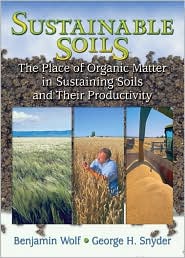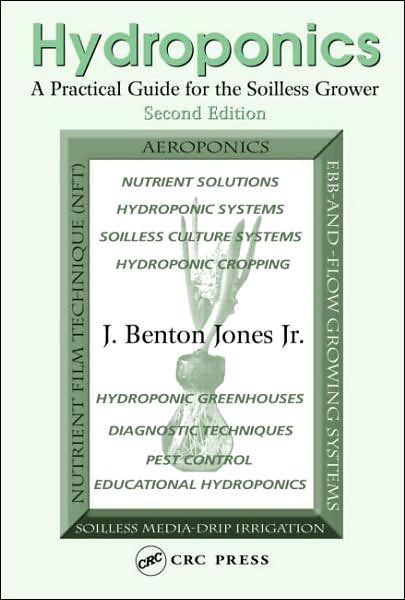You are here
| Size | Seeds | Peers | Completed |
|---|---|---|---|
| 294.39 MiB | 0 | 1 | 0 |
Truth's Book Pack 5
Ann Whitman and Suzanne DeJohn - Organic Gardening For Dummies-2nd Edition (2009)
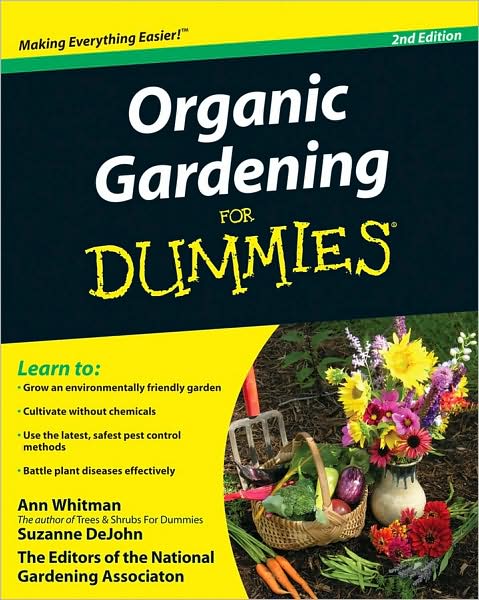
Ensure a healthy harvest through environmentally friendly gardening techniques.
Want to grow an organic garden? This guide shows you how. From maintaining your lawn and choosing problem-free plants to growing hearty fruits and vegetables, you'll discover how to stay organic year-round and reduce your garden's impact on both the environment and your wallet.
- New to this edition — learn about the latest natural fertilizers, pest control methods, equipment, and gardening resources
- Is organic right for you? — understand the basic concepts of organic gardening and plan a low-maintenance landscape
- It all starts with the soil — test your soil, make compost, and nurture the underground ecosystem that helps your plants thrive
- Deal with pesky pests — from weeds to bugs to diseases, discover the specific control measures and products for organic pest management
- Food, glorious food — grow the freshest, tastiest, and most nutritious fruits, vegetables, herbs, and nuts
Open the book and find:
- The benefits of gardening organically
- Hands-on tips for gardeners at all levels
- Color photos of successful organic gardening practices
- Guidance in building and maintaining healthy soil
- An overview of pest-control products
- Inspirational tips for making eco-conscious decisions
- Ways to attract helpful insects and other organisms
- Ten ways to have an eco-friendly landscape
Ann Whitman is the author of the first edition of Organic Gardening For Dummies.
Suzanne DeJohn is an editor with the National Gardening Association, the leading garden-based educational nonprofit organization in the U.S. NGA's programs and initiatives highlight the opportunities for plant-based education in schools, communities, and backyards across the country. These include award-winning Web sites garden.org and kidsgardening.org.
Publisher: For Dummies (2009)
ISBN: 0470430672
Barbara W. Ellis and Fern Marshall Bradley - The Organic Gardener's Handbook of Natural Insect and Disease Control: A Complete Problem-Solving Guide to Keeping Your Garden and Yard Healthy Without Chemicals (1996)

End your worries about garden problems with safe, effective solutions from The Organic Gardener's Handbook of Natural Insect and Disease Control!
- Easy-to-use problem-solving encyclopedia covers more than 200 vegetables, fruits, herbs, flowers, trees, and shrubs
- Complete directions on how, when, and where to use preventive methods, insect traps and barriers, biocontrols, homemade remedies, botanical insecticides, and more
- More than 350 color photos for quick identification of insect pests, beneficial insects, and plant diseases
Newly revised with the latest, safest organic controls.
Publisher: Rodale Press (1996)
ISBN: 0875967531
Benjamin Wolf and George H. Snyder - Sustainable Soils: The Place of Organic Matter in Sustaining Soils and Their Productivity (2003)
Wolf has 60 years of research and consulting experience in soil, plant, and water analysis and crop production. Snyder teaches soil and water science at the U. of Florida's Everglades Research and Education Center, Belle Glade, and has published and lectured extensively. They explore the factors affecting soil organic matter (SOM), the consequences of its loss--including the effects of low SOM on crop production--and the benefits of its increase. Methods are described for increasing SOM in a manner compatible with modern agriculture. For advanced students, growers, consultants, extension personal, and agricultural product sales personnel concerned with soils, crop production, agronomy, and horticulture.
Text shows the importance of organic matter in maintaining crop production. Covers the addition of organic matter to soil, what materials can be added, how much is enough, how much is too much, the nutritive value of various forms of organic matter, and the benefits that can be expected. Includes photographs, tables, and figures.
Publisher: Food Products Press (2003)
ISBN: 1560229160
Bob Flaws and Honora Lee Wolfe - The Successful Chinese Herbalist (2005)

This book is a distillation of over 20 years of knowledge from two well known American practitioners' of Chinese medicine. It is not a materia medica or a formula book. Rather it is a conversation in which the authors share both clinical and business knowledge and tips that can only be learned through years of running a practice.
What is covered in this book?
- the essence of getting to the right pattern discrimination every time
- how to write the best possible prescription for each patient
- things to consider when deciding dosages
- how to avoid the phenomenon of habituation with your herbal patients
- the main toxicity issues to consider when using Chinese herbal medicine
- when it is appropriate to use pills and powder extracts
- how to gain better compliance when using decocted formulas
- why we should avoid using the term "patent" medicine
- thoughts on running a successful clinic dispensary
- a sample herb-instruction form for patients
- why the harmonizing formulas are the most useful category of formulas for our patient population
- how to work safely with patients who are taking Western drugs
- a list of the most important treatment principles in Chinese medicine
Publisher: Blue Poppy Press (2005)
ISBN: 1891845292
Carl-Erik Tornqvist - Plant Genetics (2006)

The study of plant genetics has fascinated scientists for over two centuries. In those years scientists have taken great strides in unlocking the inner codes and structures that determine the genetic destiny of many plants. These efforts at genetic research have set the stage not only for a deeper understanding of floral life, but also technologies that allow researchers to alter the very being of living things. In this title readers are afforded an opportunity to better understand the scientific efforts and innate processes that are involved in this relatively new branch of physical science. In this illustrated book of "The Green World" series, readers are provided a glimpse of not only the human efforts aimed at this branch of science but also the societal effects thereof. For example, sections of this title are dedicated to the implications plant genetics has for fields such as agriculture, medicine, and commerce. Sadly, while much of the information contained in this book is of great interest, the writing style is one that relies too heavily upon technical terms and other vocabulary that may well escape many readers. This is a book that will be understood and valued by advanced science audiences, while mainstream readers may become frustrated. Therefore this title should be used in this vein only.
Publisher: Chelsea House Publishers (2006)
ISBN: 0791085635
Christine and Michael Lavalle - The Organic Gardener (2004)

A practical guide to natural gardens, showing how to apply organic principles to all aspects of garden plannings, design and maintenance.
Christine Lavelle is a lecturer in horticulture and ecology at Writtle College, Chelmsford, in England. She is currently researching insect visitation to garden ornamentals. Michael Lavelle is a committed environmentalist. He worked as a professional landscaper before starting a career as a horticultural lecturer in the early 1990s. He currently works as a senior lecturer in landscape management at Writtle College in Chelmsford.
Publisher: Southwater (2004)
ISBN: 1844760545
G. Schroth and F. L. Sinclair - Trees, Crops and Soil Fertility: Concepts and Research Methods (2002)

This book provides a review of both economic and biophysical aspects of soil use and research in agroforestry, with an emphasis on nutrient-poor forest and savanna soils. It combines overviews of research results and a review of methods used in research, covering topics such as the economics of soil fertility management, nutrients and organic matter, soil structures, and soil biological processes. Schroth is affiliated with the National Institute for Research in the Amazon, Brazil. Sinclair is affiliated with the University of Wales, UK.
Publisher: CAB International (2002)
ISBN: 0851995934
Inderjit - Management of Invasive Weeds (2009)
Biological invasions are one of the major threats to our native biodiversity. The magnitude of biodiversity losses, land degradation and productivity losses of managed and natural ecosystems due to invasive species is enormous. The ecological and environmental aspects of non-native invasive plants are of great importance to (i) understand ecological principles involved in the management of invasives, (ii) design management strategies, (iii) find effective management solutions for some of the worst invaders, and (iv) frame policies and regulations.
The objectives of this book are to discuss (i) ecological approaches needed to design effective management strategies, (ii) recent progress in management methods and tools, (iii) success and failure of management efforts for some of the worst invaders, and (iv) restoration and conservation of invaded land.
In an effort to achieve these objectives, contributing authors have strived to provide up-to-date information on the management of non-native invasives. Chapters included in the book are peer-reviewed by international experts working in the area. Readers will get a unique perspective on ecological aspects of the management of invasives. The book will be useful to graduate students, researchers, managers and policy makers involved in the management of exotic invasives.
Publisher: Springer (2009)
ISBN: 1402092016
J. Benton Jones Jr. - Hydroponics: A Practical Guide for the Soiless Grower (2005)
Revolutionary hydroponic/soilless advances are being achieved by efficiently improving results with the application of new concepts, methods, and equipment. The new edition of a bestseller, Hydroponics: A Practical Guide for the Soilless Grower has been revised to reflect these advances with new chapters that provide essential information on greenhouse design, function, and methods for crop production and management. With approximately 40% additional material in the second edition, the book is a state-of-the-art, comprehensive guide.
The second edition begins with the concepts of how plants grow and then describes the requirements necessary to be successful when using various hydroponic and soilless growing methods. The major focus is on the nutritional requirements of plants and how best to prepare and use nutrient solutions for different plants using various growing systems under a wide range of environmental conditions. Supported by a wealth of tables, figures, and nutrient formulas the book provides clear explanations of the advantages and disadvantages of each hydroponic growth system. Appropriate for a wide audience, this edition is a practical guide, overview, and handy reference for advanced hobbyists, commercial growers, and researchers.
Publisher: CRC Press (2005)
ISBN: 0849331676
Peter Gregory - Plant Roots: Growth, Function And Interactions With the Soil (2006)
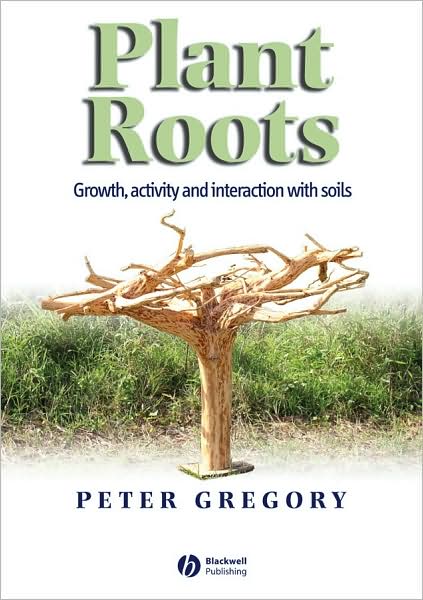
The root system is a vital part of the plant and therefore understanding roots and their functioning is key to agricultural, plant and soil scientists.
In Plant Roots Professor Peter Gregory brings together recent developments in techniques and an improved understanding of plant and soil interactions to present a comprehensive look at this important relationship.
Professor Peter Gregory is internationally known and respected for his work on roots and is Director of the Scottish Crop Research Institute, Dundee, UK.
Publisher: Blackwell Publishers (2006)
ISBN: 1405119063
U.S. Army Medical Department Center and School - Preservation of Foods (Course MD0703)


William A. Albrecht - Soil Fertility and Animal Health (2005)
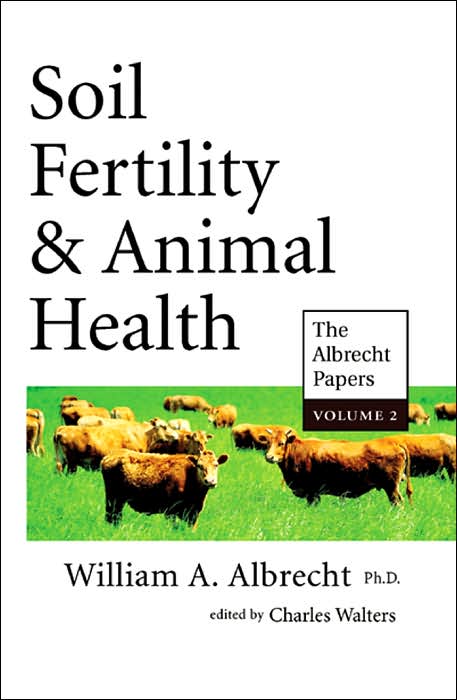
Professor William Albrecht was a premier soil scientist and was dismayed by the rapid chemicalization of farming that followed WWII. This book is a well-organized explanation of the relationship between soil fertility and animal and human health. He shows why animal health (and ultimately human health) is based in the fertility of the soil and what farmers can do to improve soil quality, solving livestock disease problems in the process.
Dr. William A. Albrecht, professor of soils at the University of Missouri College of Agriculture, was first a student of nature, and his greatest credential was that Nature accepted his findings, worked with them, and delivered much of American agriculture from the bondage of ignorance. Dr. Albrecht traveled widely and studied soils worldwide. "You have to have a vision," Dr. Albrecht used to say. "Unless you do, nature will never reveal herself." And such a vision he had. He showed that you need to feed the soil, not the plant. That animal health stems from the soil. And he developed base-level requirements for soil nutrients, formulas used to this.
Publisher: Acres U.S.A. (2005)
ISBN: 0911311076
Truth's Book Pack 1 - http://tracker.concen.org/torrents-details.php?id=15594
Truth's Book Pack 2 - http://tracker.concen.org/torrents-details.php?id=16013
Truth's Book Pack 3 - http://tracker.concen.org/torrents-details.php?id=16882
Truth's Book Pack 4 - http://tracker.concen.org/torrents-details.php?id=16973


- Log in to post comments

